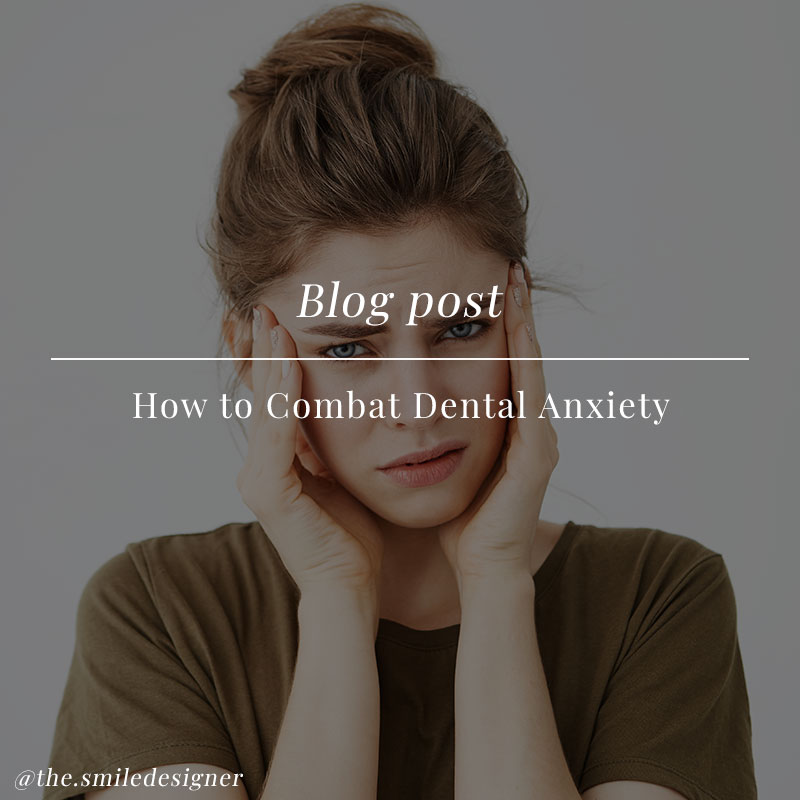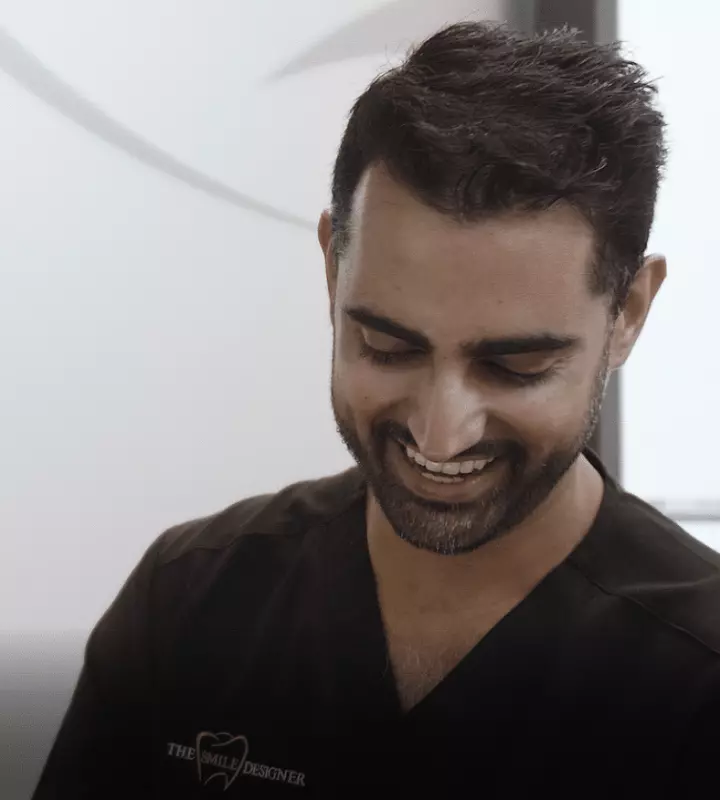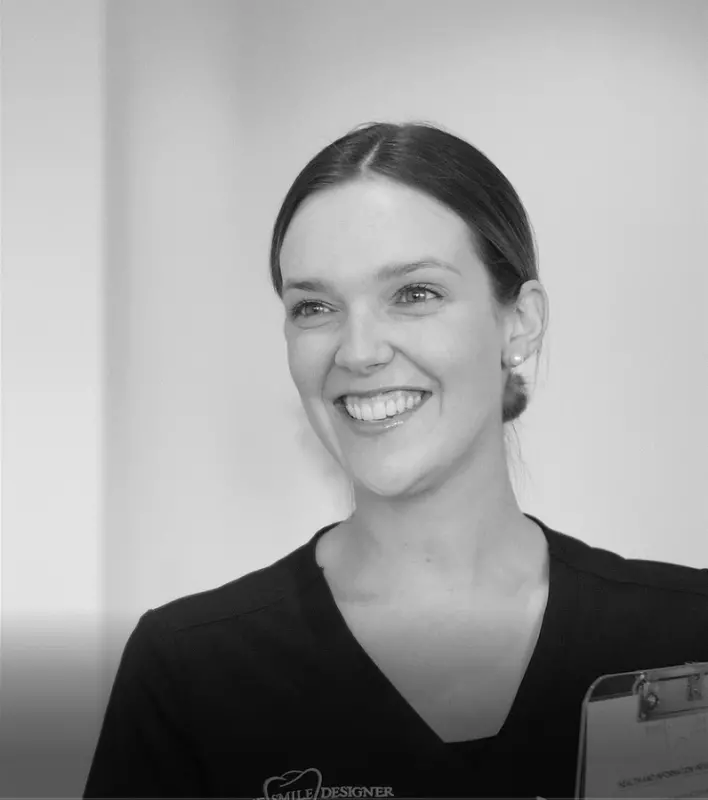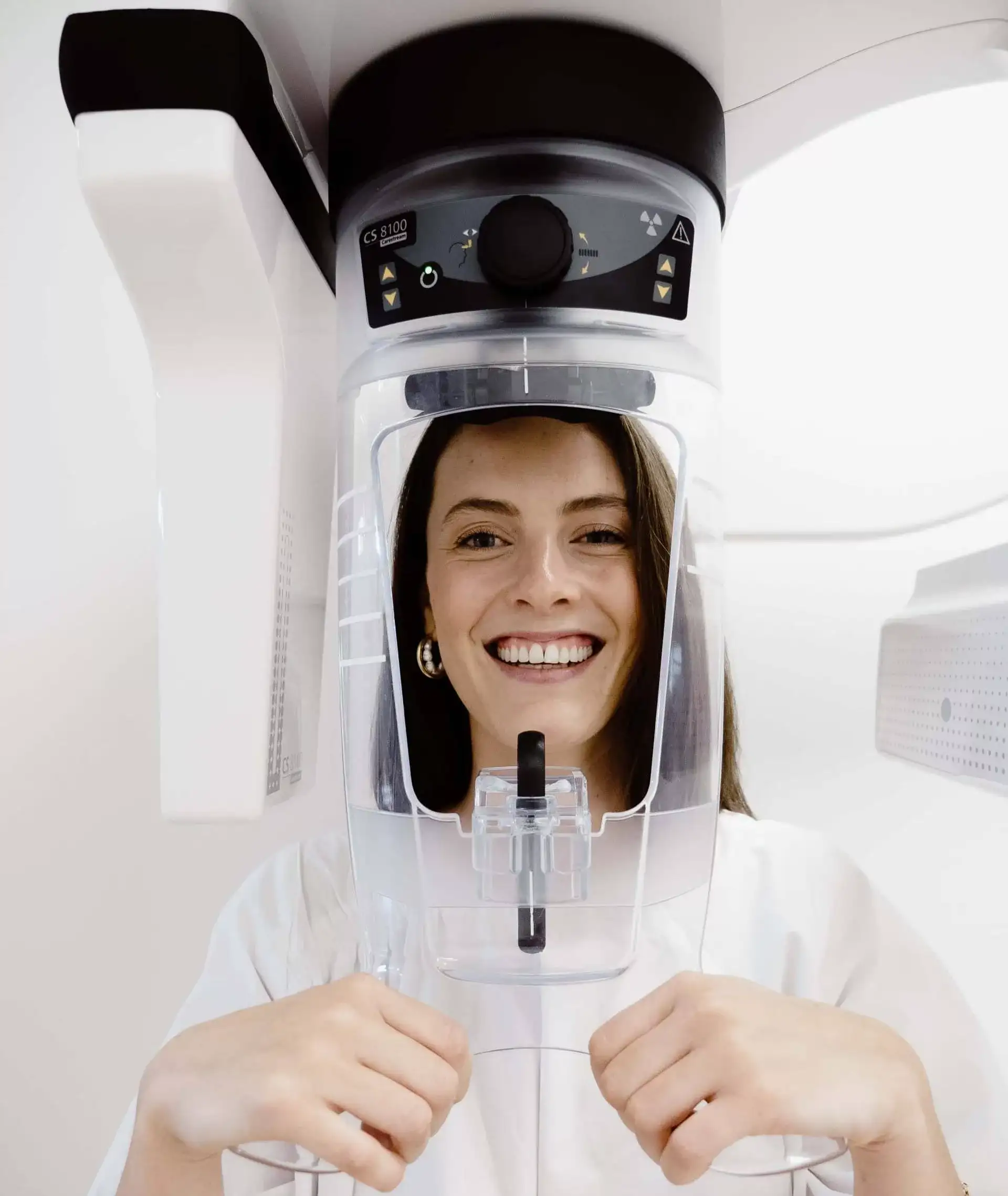Gummy Smile
How to Combat Dental Anxiety
For many, the thought of sitting in the dentist’s chair can be a source of dental anxiety. The bright lights, the unfamiliar sounds, and the idea of someone poking around in your mouth can create a strong feeling of unease.
Dental anxiety is real, but the good news is there are several strategies you can employ to make your next trip to the dentist more comfortable. Along with your plan of action, the team at The Smile Designer also work hard to ensure your visit is one where you feel at ease.
Let’s look closely at ways to ease your dental phobia and what may be causing your concern.
1. Understand the Root of Your Fear
Like many other fears, being afraid of dentists and procedures is rooted in our personal experiences, perceptions, and, sometimes, misconceptions. Unpacking this anxiety requires a deep dive into its origin, clarifying how to address it effectively:
Post-traumatic experiences
For many, a previous unsettling experience at the dentist’s office can catalyse future anxiety. This could be a painful procedure, an insensitive dentist, or even just the overwhelming atmosphere of the clinic during their first visit as a child.
These memories can leave a lasting impression, and addressing this involves:
- Acknowledging the past experience.
- Understanding that not every dentist visit will be the same.
- Ensuring you’re now in the hands of a caring professional.
Fear of Pain
One of the most common reasons for dental phobia is the fear of pain. Even simple procedures can be daunting if you’re unsure of the sensations involved.
Recognising that technology and methods have come a long way is essential. Many treatments are now virtually pain-free, and pain management options are more effective than ever.
Loss of Control
Being reclined in a dentist’s chair, unable to see what’s happening and feeling out of control can be deeply unsettling for many. This vulnerability can induce feelings of helplessness.
Establishing control mechanisms by clearly understanding the procedure steps can mitigate this fear. Knowing you have some level of control in the situation can be empowering.
Fear of Needles
A phobia of needles is not uncommon and can play a significant role in fearing oral health care, especially when injections are involved. Modern dentistry often uses incredibly fine needles, and the process is swift.
Some practices also offer numbing gels to reduce the initial prick sensation. Being open about this fear allows your dentist to approach the situation with extra care, possibly using alternative methods or distractions.
2. Choose the Right Dentist
Finding a dentist who is skilled, understanding, and compassionate can make all the difference. Look for practices that list “dental anxiety” or “sedation dentistry” among their specialties. Reviews or recommendations from friends can also be a valuable resource.
At The Smile Designer, we understand that each person’s level of fear is different. That’s why we offer sedation dentistry and work to make you feel at ease during every visit to our clinic.
3. Communicate Your Fears
It’s natural to feel apprehensive about oral procedures. However, concealing your concerns causes greater stress. By expressing your fears to your dentist, you allow them to adjust their methodologies to suit your comfort level.
This proactive conversation can significantly improve your overall experience. When there’s candidness in communication, it fosters a bond of trust between you and the dentist, ensuring that you feel secure and understood throughout the process.
This trust can be pivotal in transforming dentist visits from a source of dread to a more manageable and positive experience.
4. Bring a Buddy
Having a friend or family member with you can provide comfort. Their presence can be reassuring and help distract you or hold your hand during the procedure.
5. Distractions are Key
A good distraction can help you forget what’s happening in your mouth. Many clinics offer TVs or music for this reason. If yours doesn’t, consider bringing headphones and listening to calming music, audiobooks, or podcasts.
6. Practice Deep Breathing
Deep breathing exercises can help calm your nerves. Focus on your breath, taking slow, deep breaths in and out. This can reduce your dental phobia and divert attention from the procedure.
7. Consider Sedation Dentistry
For those with extreme phobias, sedation dentistry might be an option. At The Smile Designer, this involves medication to help patients relax during procedures. It can range from minimal sedation, where you’re awake but relaxed, to general anesthesia, where you’re completely unconscious.
If you feel this might be the process for you, speak with your dentist, who can talk you through the procedure and whether it’s right for you.
8. Schedule Appointments During Low-Stress Times
Try to schedule your appointment when you’re less likely to be stressed. For some, this might be in the morning before the day’s chaos begins, while for others, it might be later in the day when they can take it easy post-appointment.
9. Establish a Signal
Work out a signal with your dentist, like raising your hand, if you need a break during the procedure. Knowing you have a way to pause can give you a sense of control and help ease your fears.
10. Positive Reinforcement
Reward yourself after your appointment. Whether it’s a treat, a movie, or just some relaxation time, having something to look forward to can make the experience more tolerable.
11. Gradual Exposure
For those with a severe dental phobia, consider starting with shorter, more straightforward appointments and gradually working up to more intensive procedures. This step-by-step approach can help desensitise your fears and build a rapport with your dentist.
Alleviate Your Dental Phobia at The Smile Designer
Oral health is crucial for overall well-being, and avoiding the dentist due to a phobia can lead to more significant problems. By employing a few strategies and working closely with a compassionate dentist, you can conquer your dental anxiety and ensure your teeth get the care they deserve.
Remember, you’re not alone in this; many people feel the same way, and there’s no shame in seeking help to make the experience more bearable. Contact us and experience our safe and comfortable clinic.































